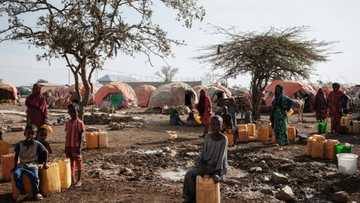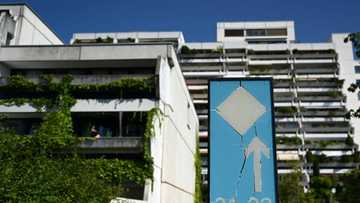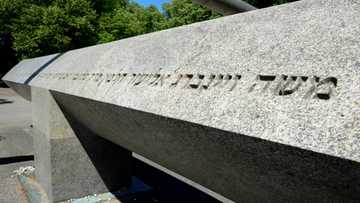French trial opens over 2016 Nice massacre
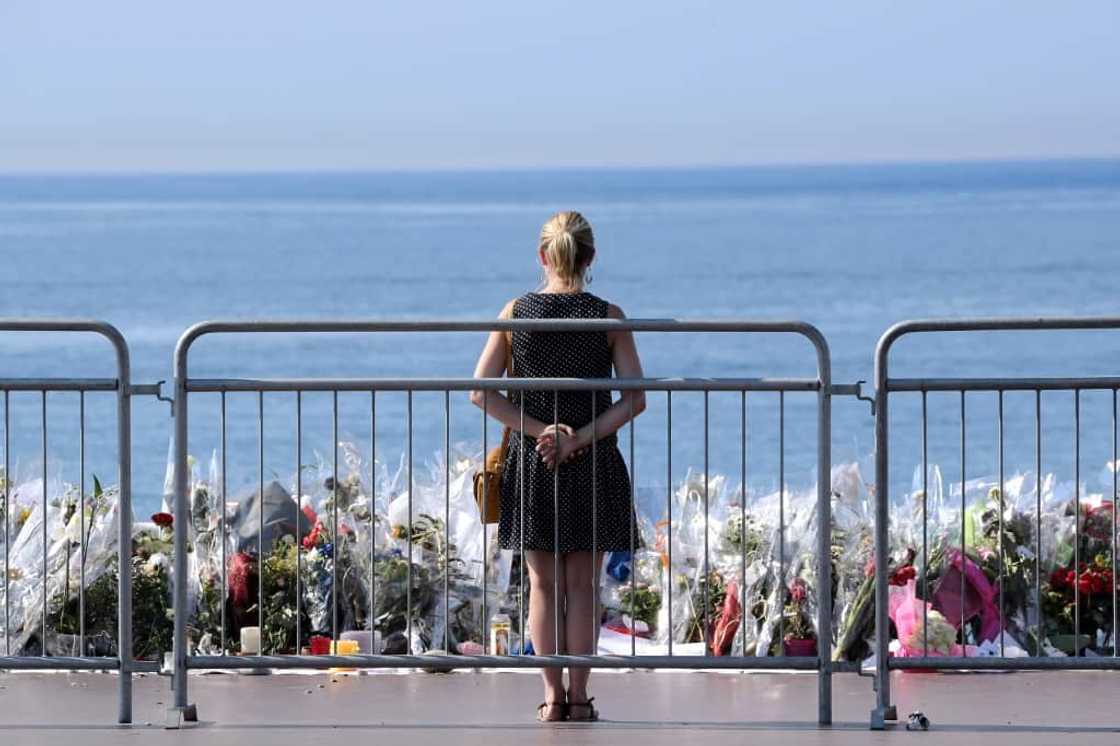
Source: AFP
New feature: Check out news exactly for YOU ➡️ find “Recommended for you” block and enjoy!
Eight suspects went on trial Monday over the July 2016 terror attack in the Mediterranean city of Nice, where an Islamist extremist killed 86 people by driving a truck into thousands of locals and tourists celebrating France's national day.
The attacker, a 31-year-old Tunisian named Mohamed Lahouaiej-Bouhlel, was shot and killed by police after a four-minute rampage down the seaside embankment of the Promenade des Anglais.
The seven men and one woman standing trial in Paris are accused of crimes ranging from being aware of his intentions to providing logistical support and supplying weapons.
Only one suspect, Ramzi Kevin Arefa, faces the maximum penalty of life imprisonment if convicted as a repeat offender. The others risk between five and 20 years in prison.
The trial, which is set to last until December 16, is the latest legal process over the wave of Islamist attacks that have struck France since 2015.
On June 29, a Paris court convicted all 20 suspects in the trial over the November 2015 attacks in the French capital that left 130 dead.
PAY ATTENTION: Never miss breaking news – join Briefly News' Telegram channel!
The Nice trial will take place at the historic Palais de Justice in Paris, in the same purpose-built courtroom that hosted the November 2015 attacks hearings, and a special venue has also been set up in Nice to allow victims to follow proceedings via a live broadcast.
'Frustration'
The trial marks a hugely important moment for survivors and relatives of the victims as they seek to move on with their lives.
"I still feel angry," said Danielle Lechailler, 73, one of the civil plaintiffs attending the trial opening. "We've had six years to confront this but the scar is still there."
The extremist Islamic State (IS) group rapidly claimed responsibility for the Nice attack, though French investigators ultimately did not find any links between the attacker and the jihadist organisation which at the time controlled swathes of Iraq and Syria.
Of the accused, three suspects are charged with association in a terrorist conspiracy and the five others with association in a criminal conspiracy and violating arms laws.
The attack, which saw 15 children and adolescents among the dead and more than 450 wounded, was the second most deadly postwar atrocity on French soil after the November 2015 Paris attacks.
Six years after the attack, "the fact that the sole perpetrator is not there will create frustration. There will be many questions that no one will be able to answer," said Eric Morain, a lawyer for a victims' association that is taking part in the trial.
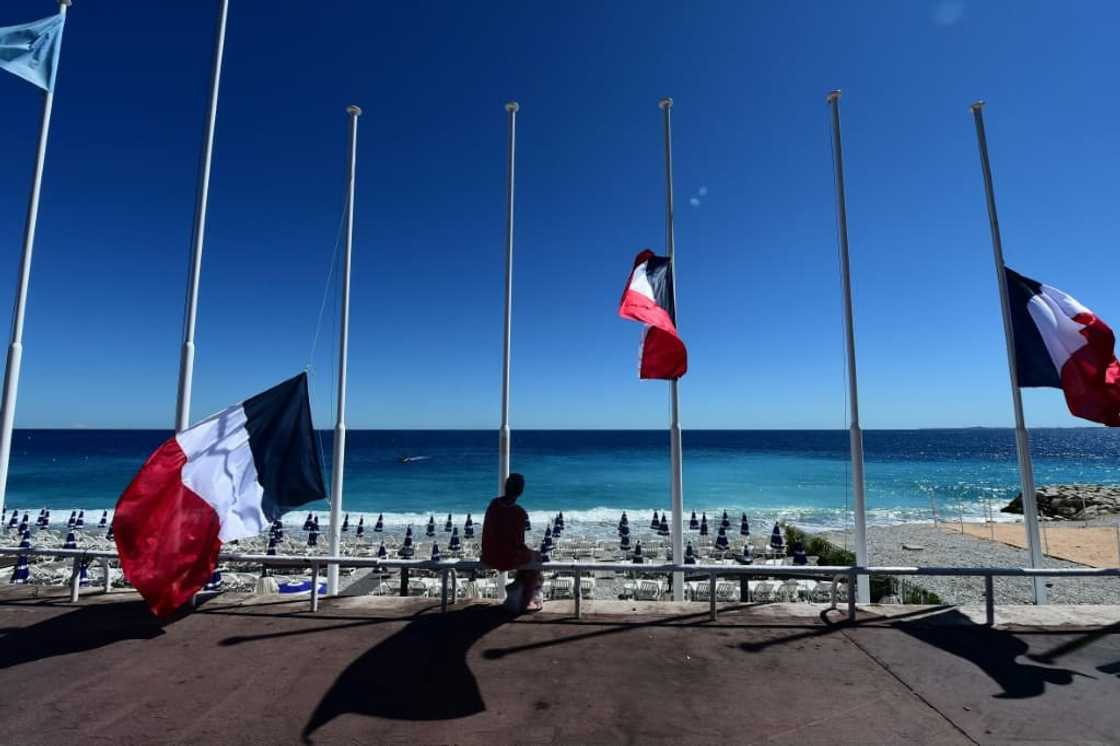
Source: AFP
"We are trying to prepare them for the fact that the sentences may not be commensurate with their suffering," said Antoine Casubolo-Ferro, another lawyer for the victims.
In the November 2015 attacks trial, just one member of the assault team, Salah Abdeslam, was not killed during or in the wake of the strikes.
He discarded his suicide belt on the night of the attacks and claimed to have changed his mind about attacking. But he was sentenced to life in prison with only a tiny chance of parole after 30 years, the toughest possible punishment under French law.
French Justice Minister Eric Dupond-Moretti commented: "I understand this frustration, it is human. But there will be a legal response. We respond to this barbarism through the law".
'Wound will never heal'
Of the accused, only seven will appear in court after one suspect, Brahim Tritrou, being tried in absentia, fled judicial supervision to Tunisia where he is now believed to be under arrest.
Just three of the accused are currently under arrest with one held in connection with another case. The defendants are a mix of Tunisians, French-Tunisians and Albanians.
Some 30,000 people had gathered on the seafront to watch a fireworks display celebrating France's annual Bastille Day holiday on July 14 when Lahouaiej-Bouhlel began his rampage.
The attack left permanent scars on the city of Nice, a byword for urban seaside glamour on France's Cote d'Azur but which like the neighbouring Mediterranean cities of Marseille and Toulon has seen rising immigration and social tension.
Nice was struck again in October 2020 when a Tunisian Islamist radical stabbed three people to death at a church.
Nice's right-wing mayor, Christian Estrosi, said: "This wound will never heal, whatever the outcome of the trial. This wound is too deep."
According to French and Tunisian press reports, the body of Lahouaiej-Bouhlel was repatriated to Tunisia in 2017 and buried in his hometown of M'saken, south of Tunis. This has never been confirmed by the Tunisian authorities.
New feature: check out news exactly for YOU ➡️ find "Recommended for you" block and enjoy!
Source: AFP

